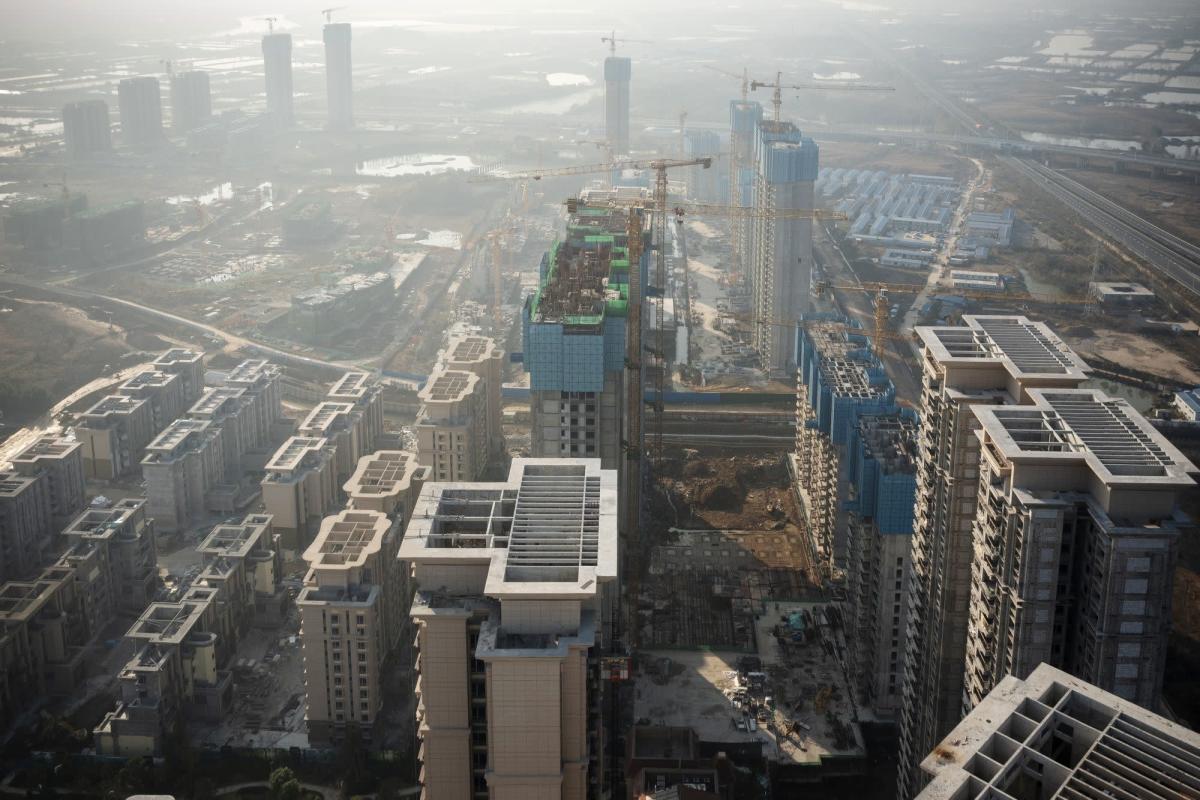Shares Halted After Hainan Demolition Report: Evergrande Update

(Bloomberg) — China Evergrande Group halted trading in its shares following local media reports that the company has been ordered to tear down apartment blocks in a development in Hainan province.
Most Read from Bloomberg
The shares were suspended pending an announcement containing inside information, Evergrande said in a brief statement. A local government in Hainan told Evergrande to demolish 39 buildings in 10 days because the building permit was illegally obtained, Cailian reported on Saturday. The project is on artificially built islands off the coast of Hainan.
An index of Chinese developer shares slumped 2%, with Sunac China Holdings Ltd. and Shimao Group Holdings Ltd. tumbling more than 9%.
Chinese property firms have mounting bills to pay in January and shrinking options to raise necessary funds. The industry will need to find at least $197 billion to cover maturing bonds, coupons, trust products and deferred wages to millions of migrant workers, according to Bloomberg calculations and analyst estimates.
Key Developments:
-
Evergrande Suspends Trading in Hong Kong
-
Evergrande Told to Dismantle Illegal Buildings in Hainan: Report
-
China Developers’ 2022 Home-Sales Recovery Could Be Challenging
-
Developer Cifi Offers to Purchase Outstanding 5.5% 2022 Bond
-
Shimao’s Liquidity Woes May Persist on Home Sales Slump: React
Evergrande Told to Dismantle Illegal Buildings in Hainan: Report (9:48 a.m. HK)
The government of Danzhou, a prefecture-level city in the southern Chinese province of Hainan, has asked Evergrande to tear down 39 illegal buildings in ten days, Cailian reported on Sunday, citing a document from the local government.
The report cited the document, which was dated Dec. 30, as saying that the Danzhou government said an illegally obtained permit for the buildings had been revoked so the buildings need to be dismantled.
Evergrande didn’t immediately respond to a request seeking comment and calls to Danzhou authorities went unanswered on a public holiday in China on Monday.
Shimao Shares Drop to Lowest Since 2009 Amid Persistent Liquidity Risks (9:50 a.m. HK)
Shares in Shimao Group Holdings dropped 5.9% to the lowest since March 2009 after the property company missed its targets.
“Risks to Shimao’s liquidity could extend into 2022 as a parade of unfavorable media headlines threatens to keep potential buyers at a distance,” Bloomberg Intelligence analyst Kristy Hung wrote in a note on Monday.
The company missed its lowered, 290 billion-yuan sales guidance for 2021 by 7%, with December’s sales tumbling 68% year-over-year and by 25% sequentially, to 12 billion yuan, according to China Real Estate Information Corp.’s preliminary data.
Evergrande Suspends Trading in Hong Kong (8:58 a.m. HK)
The company gave no reason for the trading suspension.
China Evergrande on Friday dialed back payment plans on billions of dollars of overdue wealth management products as its liquidity crisis showed little sign of easing.
Developers Face $197 Billion Challenge (8:00 a.m. HK)
China’s property developers have mounting bills to pay in January and shrinking options to raise necessary funds.
The industry will need to find at least $197 billion to cover maturing bonds, coupons, trust products and deferred wages to millions of migrant workers, according to Bloomberg calculations and analyst estimates. Beijing has urgedbuilders like China Evergrande Group to meet payrolls by month-end in order to avoid the risk of social unrest.
Developer Cifi Offers to Purchase Outstanding 5.5% 2022 Bond (7:52 a.m. HK)
Cifi Holdings offered to buy the outstanding notes at $1,000.5 for each $1,000 in principal amount plus accrued and unpaid interest, it said in a statement to the Hong Kong stock exchange.
The Chinese developer will determine the aggregate principal amount of notes that it will accept for purchase. The offer to buy the $505.1 million of notes that remain outstanding will expire at 4pm London time on Jan. 7.
Most Read from Bloomberg Businessweek
©2022 Bloomberg L.P.




